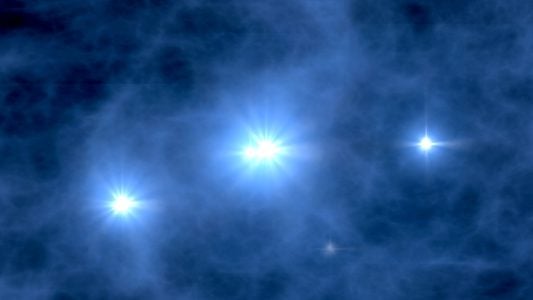
(Wikimedia Commons)
Some interesting comments from a German theoretical physicist about possibly running up against the limits of science:
“How do you prove that Earth is older than 10,000 years?”
If I had to hazard a judgment from the article, I would guess that she’s not a theist. But I expect that I’ll be assaulted yet again for quoting only anti-scientific Christian apologists, or something of that sort. Sigh.
***
Our scientific knowledge remains distressingly superficial. By which I mean to say that we’re, literally, largely limited to the surface of the Earth. We don’t know nearly as much as we would like to know about the depths of the ocean, and we’re still in the dark to a surprising degree about what’s below our feet:
***
I think that I’ll now continue my fundamentalist-obscurantist war on science with yet another striking article:
“The Worst Theoretical Prediction in the History of Physics”
***
Things aren’t as dire as they look, though:
“Laws of physics still universal, studies find”
Which, in my opinion, is philosophically and theologically intriguing.
***
Here, though, is an important statement that might reassure some of my critics, who affect to imagine that, when I suggest that science has limits, I’m attacking science. And reason. And rationality. And decency. And so forth.
The Nobel laureate physicist Albert A. Michelson — of the famous Michelson-Morley experiment regarding the speed of light — is speaking here, in the second lecture of a series titled Light Waves and Their Uses, about projected improvements in the precision of scientific measurements:
What would be the use of such extreme refinement in the science of measurement? Very briefly and in general terms the answer would be that in this direction the greater part of all future discovery must lie. The more important fundamental laws and facts of physical science have all been discovered, and these are now so firmly established that the possibility of their ever being supplanted in consequence of new discoveries is exceedingly remote.
Science, in other words, has it all just about nailed down. There are no big questions remaining. We just need to measure things more exactly. It’s going to be a process of pinning down the details and the minutiae.
Of course, Dr. Michelson was lecturing in 1899. His lecture was eventually published in 1903, and he won the Nobel Prize in 1907.
Albert Einstein introduced his revolutionary theory of “special relativity” in a 1905 paper titled “Zur Elektrodynamik bewegter Körper” (“On the Electrodynamics of Moving Bodies”). Then, between 1907 and 1915, he developed his theory of gravitation, known as “general relativity.” As a whole, Einstein’s theory of relativity represents one of the two most stunning developments in modern physics.
The German mathematician and physicist Johann Philipp Gustav von Jolly (d. 1884) advised one of his students not to go into physics, remarking that, “in this field, almost everything is already discovered, and all that remains is to fill a few unimportant holes.”
That student was Max Planck. In 1900, he became a pivotal figure in the other of those two stunning developments in physics with his proposal that energy is radiated and absorbed in discrete “packets” or “quanta” — a proposal that became the basis of “quantum theory.” (Max Planck would win the 1921 Nobel Prize in Physics.)
And Edwin Hubble’s discovery of the expanding universe was still to come, as was Father Georges Lemaître’s formulation of the Big Bang theory. And so on and so forth.
***
None of this is to mock or belittle Albert Michelson, who was a very great scientist. It’s simply to observe that much remained to be learned in 1899, and to suggest that much very likely remains to be learned in 2017. Revolutions — indeed, revelations — may be just around the corner.
That’s not an attack on science. Nobody should see it as a criticism or as a threat. It’s exciting.










